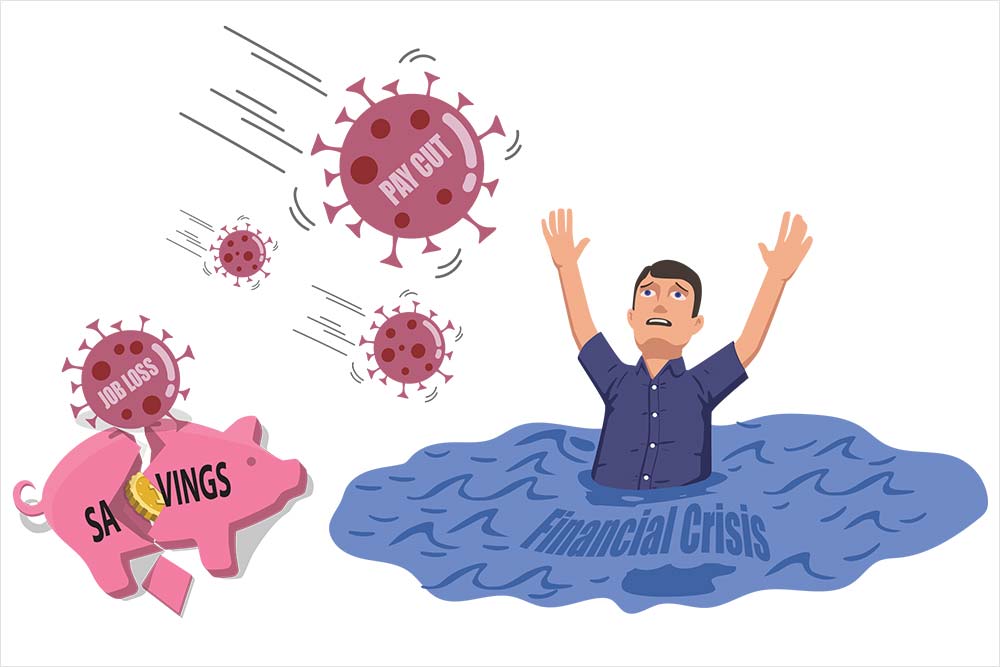The novel coronavirus-induced pandemic since January 2020 is likely to moderate demand trends across consumer and personal finance loan segments in the current financial year and during Q2 and Q3 of FY21. Consumer spending across loan categories, such as personal loans and consumer loans, taken to finance small-ticket items like washing machines, dishwashers, heaters, refrigerators and air conditioners have been impacted badly due to factors like loss of jobs, salary cuts and continued uncertainty about the future.
Both banks and NBFCs have also tightened their credit procedures and risk assessment systems to ensure that credit is offered only to customers with a good repayment track record. The scuttlebutt exercise done by some large NBFCs and banks reveal that credit demand is high but disbursements continue to show a slower growth as recovery and risk assessment of consumers are now a vital area for financiers.
Financial advisors we spoke to say that banks and NBFCs with high moratoriums are giving out credit at a slower pace. According to Dun & Bradstreet’s Economy Forecast, demand will only materialise once the economic activity gathers momentum. It is also of the view that despite an increase in the e-commerce activity, indicating some tentative revival in pent-up demand, the expected decline in the investment activity can be a drag on growth.
Therefore, while the festival-related demand might pose some buoyancy to the industrial activity from October 2020 onwards, the magnitude will remain low compared to last year. With COVID-19 disruption worsening, coupled with government finances remaining constrained and defaults and bankruptcies in the private sector yet to unravel, most financiers are not expecting a bumper revival in festival demand. The Indian banking sector has also shunned lending to small-and medium-sized businesses, while staying away from riskier personal loans. The risk aversion to unsecured credit has brought down overall credit card outstanding loans.
Outstanding credit card loans fell 14.1 per cent between March and May 2020, as compared to an increase of 6.1 per cent in the same period last year. Consumer durable loans fell 6.4 per cent, as compared to a 3.4 per cent decline in this period last year.
Outstanding personal loans fell 3.6 per cent between March and May against a 2.8 per cent increase last year. Housing loans also declined 0.7 per cent in the first two months of this financial year compared to a rise of 1.4 per cent last year.
Within the retail loans, mortgage loans grew at 12.9 per cent, slowest since November 2017, while the growth in personal loans slowed down further to 12.3 per cent. Credit card loans also declined 0.8 per cent YoY – first time since April 2014. This is in stark contrast to new loan origination volumes during 2019 when demand for personal loans, consumer loans, credit cards grew by over 80 per cent in 2019 over 2018. A large part of these disbursed loans came in from purchase of consumer durable goods during the festive season last year. This growth was also largely on account of new loan originations with ticket sizes getting reduced to as low as Rs 20,000.
Banks also continued to give out loans in the ticket size bracket of Rs 300,000 & above, with traditional NBFCs too showing a significant decline in their ticket sizes to Rs 50,000. During FY20, credit cards and personal loans recorded growth at 40 per cent and 28 per cent YoY in Q2FY20. Secured and unsecured loans including auto loans, loans against property, home loans and credit cards saw growth of 10.3 per cent, 11.6 per cent, 10 per cent and 40 per cent, respectively during Q2FY20. Public sector banks, such as Bank of Baroda launched ‘Baroda Personal Loan COVID-19’, for its existing retail loan customers to avail personal loans. Similarly, among many other launches by many banks, Bank of India also launched ‘Bank of India COVID-19 Personal Loan’ for Individuals.
Banks and NBFCs are offering such personal loans for a specific purpose to tide over the liquidity crunch facing COVID-19 pandemic largely on account of emergencies like layoffs, salary cuts, or any unforeseen shortfall in income, etc. The interest rate on these loans are lower than personal loans, and vary from 8 per cent to 15 per cent, per annum. The loan term also ranges from six months to five years.
Meanwhile, there are some signs of normalcy emerging from sectors like automobiles where traditionally festival sales have always remained strong. In recent months, there has been a strong demand for both two wheelers and four wheelers as the need for personal transportation is going up.
Sales of cars and two wheelers in India are slowly rising after witnessing nearly zero sales in April when the country went into a total lockdown. On the other hand, sectors like housing which have traditionally recorded higher volumes of sales in festive months are showing no sign of revival. The coronavirus outbreak has severely impacted the country’s real estate sector, which has been reeling from the adverse impact of liquidity crunch, high inventory overhang, weak affordability and subdued demand conditions.
In conclusion India’s lockdown has left a deep scar on the economy, with Q1FY21 GDP contracting by 23.9 per cent YoY, one of the steepest among Asian countries. Unfortunately, the easing of lockdown restrictions comes even as India’s COVID-19 curve continues to steepen risking a derailment of the recovery process. The spread of the infection is no longer limited to urban centers, but has now shifted towards smaller towns and rural areas. The economy is likely to remain in a contraction mode for the next couple of quarters and will return a small growth only from Q4FY21 onwards. Headwinds facing job recovery, high government debt levels, and continued risk averse sentiments of the banking sector are likely to be the key monitorable.
The author is Director Research at ProfitMart Securities

